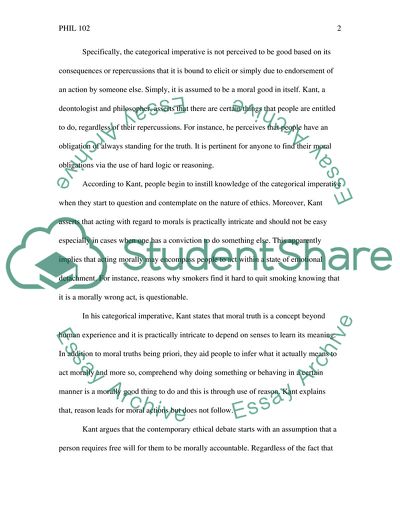PHIL 102 Essay Example | Topics and Well Written Essays - 500 words - 1. Retrieved from https://studentshare.org/philosophy/1613337-phil-102
PHIL 102 Essay Example | Topics and Well Written Essays - 500 Words - 1. https://studentshare.org/philosophy/1613337-phil-102.


